
By: Chioma Madonna Ndukwu
Texas Governor Abbott Labels Muslim Brotherhood, CAIR as Foreign Terror Groups, Imposes Statewide Ban
Texas Governor Greg Abbott has announced the designation of the Muslim Brotherhood and the Council on American–Islamic Relations (CAIR) as “foreign terrorist” and “transnational criminal” organisations, placing sweeping restrictions on both groups within the state.
Abbott confirmed the designation on Wednesday, accusing the organisations of links to global terrorism.
He said the action bars them from purchasing or owning land anywhere in Texas and authorises legal steps to dismantle their operations.
In a post on X, the governor disclosed that he had directed Texas Attorney General Ken Paxton to initiate lawsuits aimed at “shutting them down.”
The move marks one of the most aggressive state-level actions taken against the Muslim Brotherhood and CAIR in the United States.
Founded in Egypt in 1928, the Muslim Brotherhood is a transnational Islamist organisation with branches and ideological offshoots across several regions, including groups like Hamas.
CAIR, established in 1994, is the largest Muslim civil rights and advocacy organisation in the United States.
CAIR has strongly denied any association with the Muslim Brotherhood, insisting it has never been an affiliate, chapter, or agent of any foreign organisation or government.
The designation comes amid heightened political debate in the United States over foreign influence, domestic extremism, and the role of religious advocacy groups.
While the Muslim Brotherhood has been banned or restricted in several Middle Eastern countries, it is not designated as a terrorist organisation by the U.S. federal government.
CAIR has long been a prominent voice for American Muslims, advocating on issues ranging from civil rights to religious discrimination.
The group has frequently clashed with conservative leaders who accuse it of radical ties—claims CAIR maintains are baseless.
Governor Abbott’s decision reflects a broader push by some state-level officials to take independent counter-terrorism actions, even in areas traditionally reserved for federal authorities.
Legal analysts say the move could trigger significant constitutional battles, especially over freedom of association, religious rights, and the limits of state power in foreign policy matters.
The announcement also comes at a time when debates over extremism, religious freedom, and national security have intensified across the United States, potentially setting the stage for prolonged political and legal confrontations.



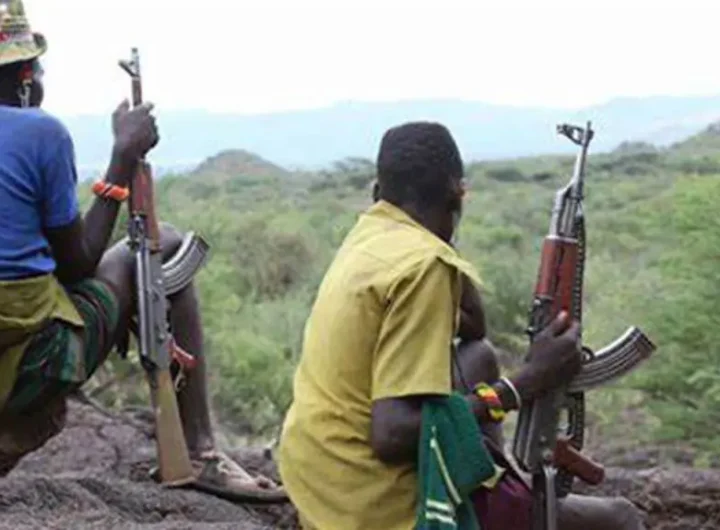 Bandits Demand N100m Each for 30 Abducted Worshippers in Kwara Community
Bandits Demand N100m Each for 30 Abducted Worshippers in Kwara Community  Fear Grips Nigeria as Terrorists Target Large Gatherings in Wave of Attacks and Abductions
Fear Grips Nigeria as Terrorists Target Large Gatherings in Wave of Attacks and Abductions  Nigeria Confirms Lead on Where Abducted Kebbi Schoolgirls Are Being Held
Nigeria Confirms Lead on Where Abducted Kebbi Schoolgirls Are Being Held 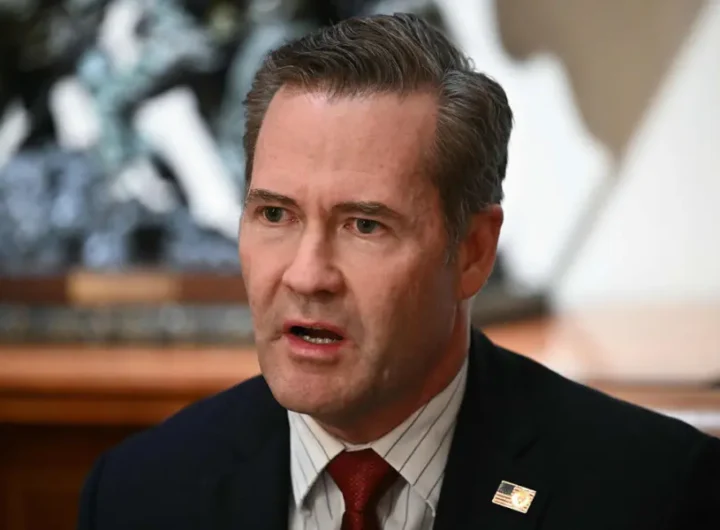 US Envoy Waltz Alleges Slow-Motion Genocide Against Christians In Nigeria
US Envoy Waltz Alleges Slow-Motion Genocide Against Christians In Nigeria  Stop The Bloodshed — Nicki Minaj Joins Global Outcry Over Nigeria’s Surge In Religious Killings
Stop The Bloodshed — Nicki Minaj Joins Global Outcry Over Nigeria’s Surge In Religious Killings  Nigerian Police Stop Naval Officer Lt. Yerima in Abuja Under Unclear Circumstances [Video]
Nigerian Police Stop Naval Officer Lt. Yerima in Abuja Under Unclear Circumstances [Video] 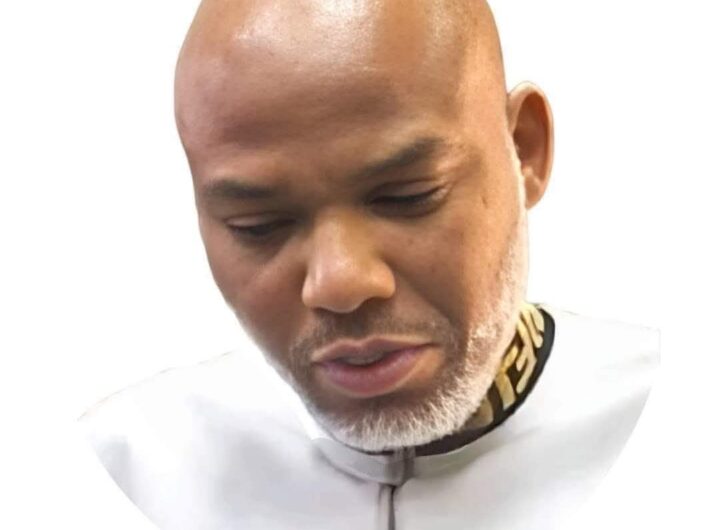 Sowore Alleges Nnamdi Kanu Has Been Secretly Transferred to Sokoto Prison
Sowore Alleges Nnamdi Kanu Has Been Secretly Transferred to Sokoto Prison 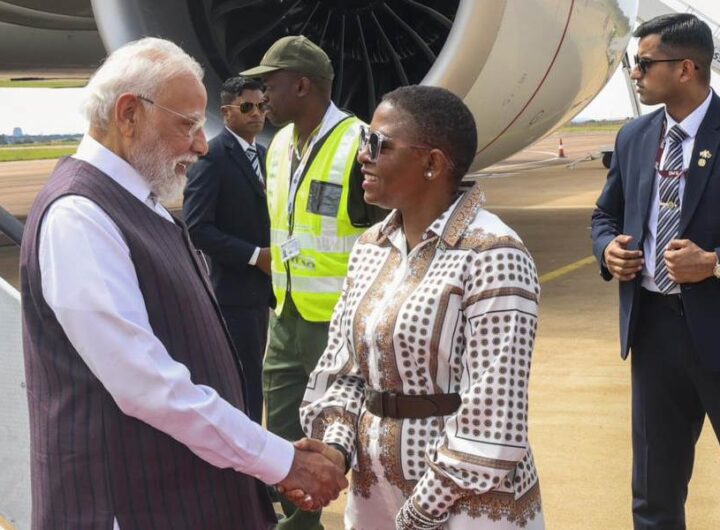 PM Modi Arrives in South Africa for Historic G20 Summit on African Soil
PM Modi Arrives in South Africa for Historic G20 Summit on African Soil 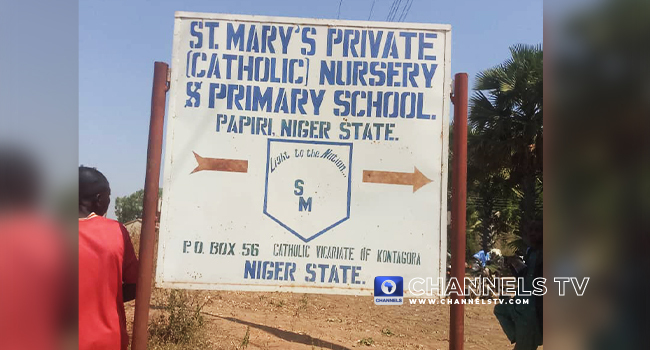 Police, Military Launch Major Search After Students Kidnapped in Niger State
Police, Military Launch Major Search After Students Kidnapped in Niger State 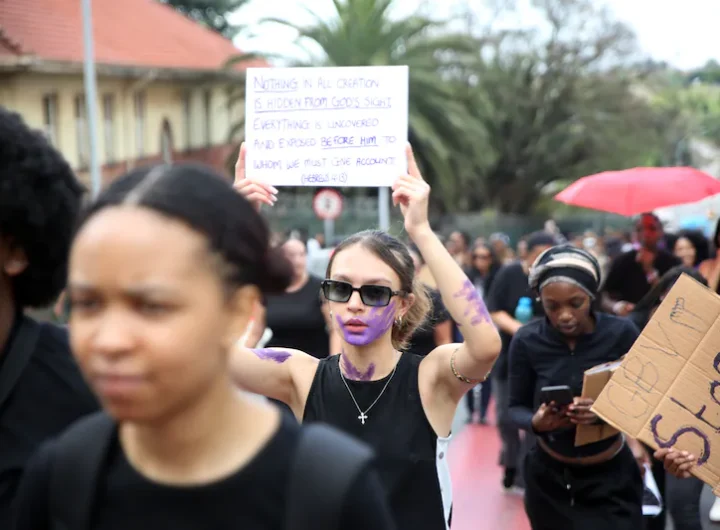 Women for Change Shutdown Demands Action on South Africa’s GBV Crisis
Women for Change Shutdown Demands Action on South Africa’s GBV Crisis